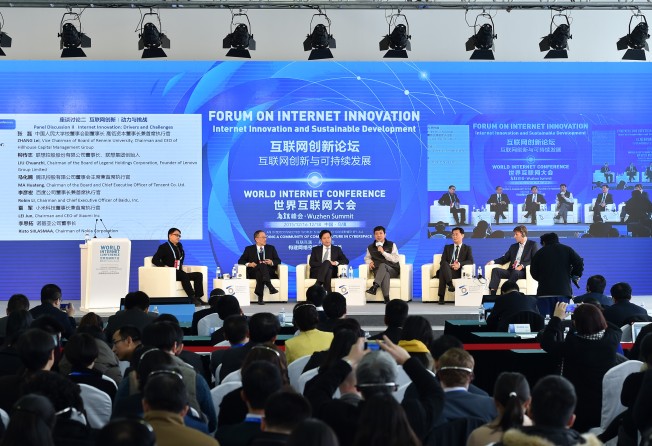Cybersecurity is a worthy goal, but the internet is also about free information flows
The internet is so instrumental to the free flow of information that President Xi Jinping should be guided by his own words that it should be multilateral, democratic and transparent

As the Communist Party becomes increasingly assertive in the way it controls cyberspace, President Xi Jinping (習近平) has used an international forum to defend Beijing’s hard line on internet freedom and state security. At the World Internet Conference in Wuzhen, he laid out a vision for an international system of cyber governance to “protect the legitimate rights and interests of all internet users”.
Ruling out hegemony, without referring to US dominance, he called for respect for other countries’ rights to involvement in internet governance that safeguarded their choice of regulation, and criticised “double standards”. His keynote speech made clear that China should be involved in writing the rules.
In trying to influence the debate about internet governance, he said strict controls were justified by the need for a balance between “order” and freedom of expression and stressed that countries had the right to set their own rules. “While respecting internet users’ rights to exchange ideas and express views, efforts should be made to build a sound cyberspace order under law.”
Xi was in effect asserting sovereign rights in cyberspace to justify China’s increasing control, recently underlined by the trial of outspoken human-rights lawyer Pu Zhiqiang for allegedly inciting ethnic hatred and “provoking trouble” with microblogs critical of the Communist Party. Beijing has been increasingly criticised for imposing strict controls on cyberspace and banning social media sites and news portals. Such signs of less tolerance of internet freedom have caused concerns among liberals and intellectuals. But it should also be remembered that the internet can be a force for evil, as shown by the rise of Islamic State.
Xi has a point about different countries needing their own internet rules. That said, the need to strike a balance that reflects his stated respect for the right to exchange ideas and express views is paramount. After all, the internet was created to promote the flow of information. Ultimately it would be futile to try to strike a sustainable balance simply by controlling and stemming the flow - or swimming against the tide. China’s stepped up controls come at a time the country’s internet economy is booming, the number of users surpassing 600 million and growing. Every country has a legitimate expectation to have a cyberspace regime that safeguards sovereignty and takes account of core concerns. But the internet is so instrumental to the free flow of information that Xi should be guided by his own words that it should be multilateral, democratic and transparent.